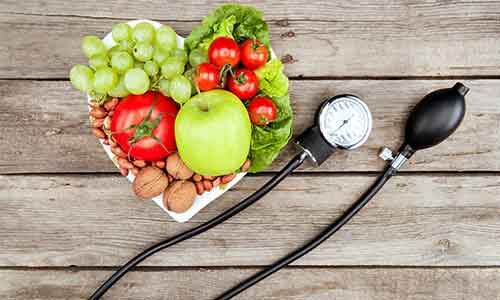- Home
- Medical news & Guidelines
- Anesthesiology
- Cardiology and CTVS
- Critical Care
- Dentistry
- Dermatology
- Diabetes and Endocrinology
- ENT
- Gastroenterology
- Medicine
- Nephrology
- Neurology
- Obstretics-Gynaecology
- Oncology
- Ophthalmology
- Orthopaedics
- Pediatrics-Neonatology
- Psychiatry
- Pulmonology
- Radiology
- Surgery
- Urology
- Laboratory Medicine
- Diet
- Nursing
- Paramedical
- Physiotherapy
- Health news
- Fact Check
- Bone Health Fact Check
- Brain Health Fact Check
- Cancer Related Fact Check
- Child Care Fact Check
- Dental and oral health fact check
- Diabetes and metabolic health fact check
- Diet and Nutrition Fact Check
- Eye and ENT Care Fact Check
- Fitness fact check
- Gut health fact check
- Heart health fact check
- Kidney health fact check
- Medical education fact check
- Men's health fact check
- Respiratory fact check
- Skin and hair care fact check
- Vaccine and Immunization fact check
- Women's health fact check
- AYUSH
- State News
- Andaman and Nicobar Islands
- Andhra Pradesh
- Arunachal Pradesh
- Assam
- Bihar
- Chandigarh
- Chattisgarh
- Dadra and Nagar Haveli
- Daman and Diu
- Delhi
- Goa
- Gujarat
- Haryana
- Himachal Pradesh
- Jammu & Kashmir
- Jharkhand
- Karnataka
- Kerala
- Ladakh
- Lakshadweep
- Madhya Pradesh
- Maharashtra
- Manipur
- Meghalaya
- Mizoram
- Nagaland
- Odisha
- Puducherry
- Punjab
- Rajasthan
- Sikkim
- Tamil Nadu
- Telangana
- Tripura
- Uttar Pradesh
- Uttrakhand
- West Bengal
- Medical Education
- Industry
Plant-based diet not tied to hyperkalemia risk in CKD patients, finds study

Pisa, Italy: Chronic kidney disease (CKD) patients often experience a frequent complication of hyperkalemia (HK). Vegetable-based renal diets are considered as risky for such patients due to the high content of potassium (K). But now a recent study has found plant-based low-protein diets to be safe for CKD patients.
According to the study, published in the journal Internal and Emergency Medicine, plant-based low-protein diets are not associated with significant higher prevalence of HK.
Claudia D'Alessandro, University of Pisa, Pisa, Italy, and colleagues described the correlated and prevalence of chronic HK in CKD patients on nutritional care, and in particular, the risk of HK in patients on plant-based versus animal-based low protein diets (LPD).
The study recruited adult CKD patients not on dialysis afferent to renal nutrition clinic from November 2014 to May 2019. The researchers evaluated a total of 870 accesses in 219 patients (172 m, 47 f, age 67 ± 13 years). HK was defined as mild when K serum level was 5.1–5.9 mEq/l, moderate when K serum level was 6.0–6.9 mEq/l, and severe HK when K serum level was ≥ 7 mEq/l. Biochemical, anthropometric data, and medications were recorded.
Key findings of the study include:
- The prevalence of HK in all the renal nutrition visits was 26.1%; all but six cases were mild HK, whereas no severe HK was observed.
- The prevalence of HK was associated with decreased eGFR, up to 36.5% for eGFR < 20 ml/min. Medications were similar in hyperkalemic and normokalemic patients, RAASi being present in up to 85% of patients.
- In a follow-up of 40 ± 14 months, no association was found between HK and mortality, whereas HK, at the start of follow-up, showed a trend to increased ESRD risk.
- Serum potassium levels and prevalence of HK were not different between patients on animal-based low-protein diet and plant-based low-protein diet.
- Chronic HK is quite prevalent in a renal nutrition clinic, especially when eGFR falls down below 60 ml/min, thereby reaching the highest prevalence in CKD stage 4.
- Hyperkalemia is mostly mild, being moderate to severe HK quite infrequent.
- Hyperkalemia was not associated with higher risk of mortality, whereas a trend, although not statistically significant, was observed for lower ESRD-free survival.
"Plant-based low-protein diet is not associated with significantly higher prevalence of HK with respect to animal-based LPD at the same residual kidney function," concluded the authors.
The study, "Prevalence and correlates of hyperkalemia in a renal nutrition clinic," is published in the journal Internal and Emergency Medicine.
Dr Kamal Kant Kohli-MBBS, DTCD- a chest specialist with more than 30 years of practice and a flair for writing clinical articles, Dr Kamal Kant Kohli joined Medical Dialogues as a Chief Editor of Medical News. Besides writing articles, as an editor, he proofreads and verifies all the medical content published on Medical Dialogues including those coming from journals, studies,medical conferences,guidelines etc. Email: drkohli@medicaldialogues.in. Contact no. 011-43720751


